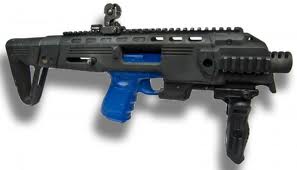We get many questions about filling out ATF forms with trusts. Here is a summary of the common forms that need to be filled out along with instructions on how to fill them out properly.
While most trusts do not have EIN numbers, the proper way of filling out the documents is to include your social security number as that is your TAX ID number. At this time, ATF does not seem to care whether you leave it blank, put N/A, or include your Tax ID number or an alternate EIN number. This may change.
Many people feel that they should not have to pay an additional tax stamp to transfer from themselves to their trust. using your SS number on both would seem to indicate that there is not a taxable transfer. The problem is one of economics. Generally no one wants to fight over the $200 tax stamp. Even if you have 10 or 20 NFA firearms, the cost of raising this issue would be far more than paying the tax.
 NFA Gun Trust Lawyer Blog
NFA Gun Trust Lawyer Blog


 While it is legal to add a Stock or a Folding Stock to a pistol, doing so will create a SBR which must be engraved and approved using an ATF Form 1 prior to doing so. In fact, having a stock and a pistol in close proximity with the present ability to configure it as an SBR could be constructive possession of an SBR. If you are planning on doing building an SBR, you should keep the stock in a separate location so that you are not charged with possession of an SBR without a valid tax stamp and approval to do so.
While it is legal to add a Stock or a Folding Stock to a pistol, doing so will create a SBR which must be engraved and approved using an ATF Form 1 prior to doing so. In fact, having a stock and a pistol in close proximity with the present ability to configure it as an SBR could be constructive possession of an SBR. If you are planning on doing building an SBR, you should keep the stock in a separate location so that you are not charged with possession of an SBR without a valid tax stamp and approval to do so.